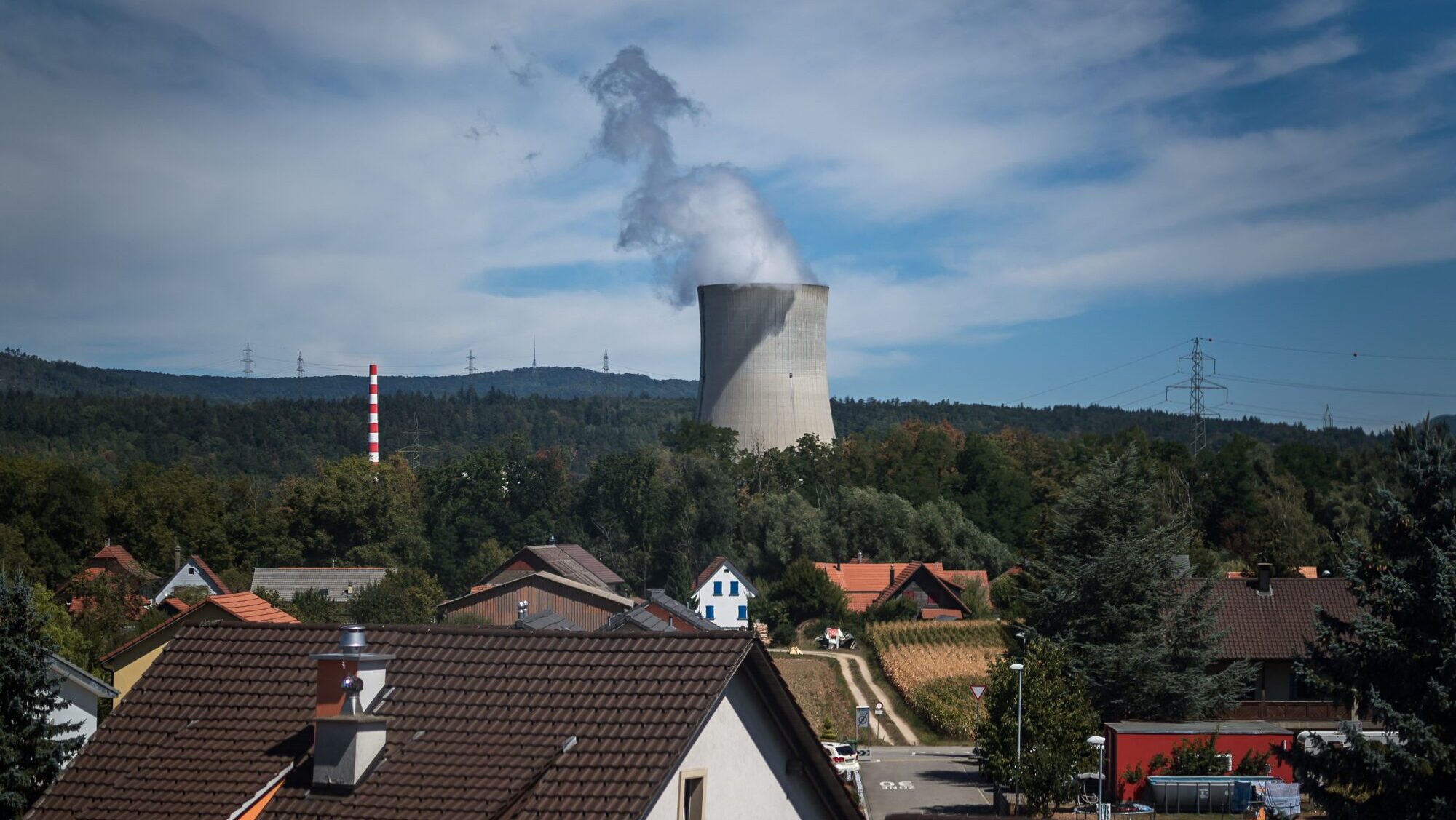
The Goesgen nuclear power plant is seen near Daeniken on August 13, 2022. Switzerland could face electricity shortages this winter. Reduced gas supplies from Russia and offline French nuclear plants are to blame, as the country depends on European electricity imports over the winter months.
Photo: Fabrice COFFRINI / AFP
After a set of strict emissions limits was voted down at the polls on Sunday, Switzerland’s Young Greens—who unsurprisingly brought the proposals forward—complained that “defenders of the status quo” had been victorious. Clearly, the opposite is the case: Swiss voters signaled a small yet decisive shift away from Europe’s destructive green drive.
Brussels is, however, more likely to pay attention to those Swiss lawmakers desperately searching for other ways to legislate ‘for the environment’—and, as issues surrounding the EU’s Green Deal show, against competitiveness.
Among other measures included in the ‘Environmental Responsibility’ proposals, voters rejected reducing greenhouse gases emitted through consumption to 10% of their 2018 levels within the next decade. Bloomberg says they did so—with 69.8% voting against, no less, and with none of the country’s 26 cantons voting in favour—because of “economic concerns.”
Swiss Voters Reject Emission Curbs Over Economic Concerns https://t.co/PBFI2ZMTYR pic.twitter.com/V5sYIG5U7F
— Heather Exner-Pirot (@ExnerPirot) February 9, 2025
Social Democrat Linda De Ventura said the vote was “not a statement against climate protection,” while the Greens accused their opponents of “scaremongering” by emphasising economic issues rather than “planetary protection.” Swiss professor Stefan Legge added that proponents of the measures might actually have been happily expecting defeat,
Because even if they fail in a vote, this way you put a topic on the agenda.
Switzerland is already tied to ‘net zero’ by 2050 commitments, although this latest vote could suggest these will soon come under heavier scrutiny, too.
Lukas Golder, from the gfs.bern research institute, said that while this set of rejected environmental measures is popular among much of the Left, there is no such appetite for such “drastic” proposals across the wider population.
A higher proportion of voters rejected the measures than polls suggested ahead of Sunday. Golder’s comments suggest that had the turnout been higher than 38%—which is fairly low by Swiss standards—the margin against would have been greater still.
